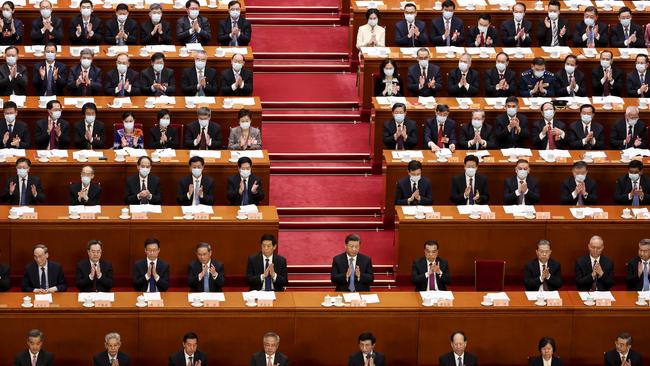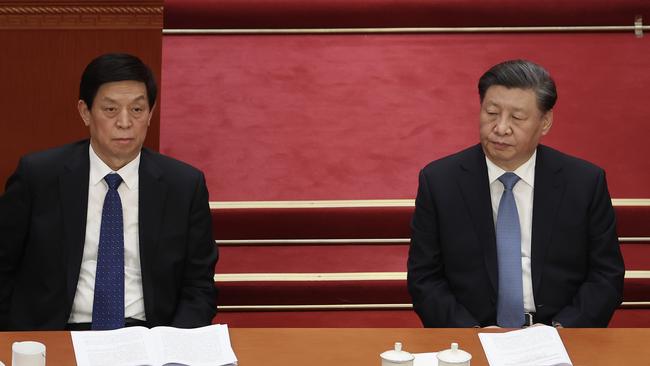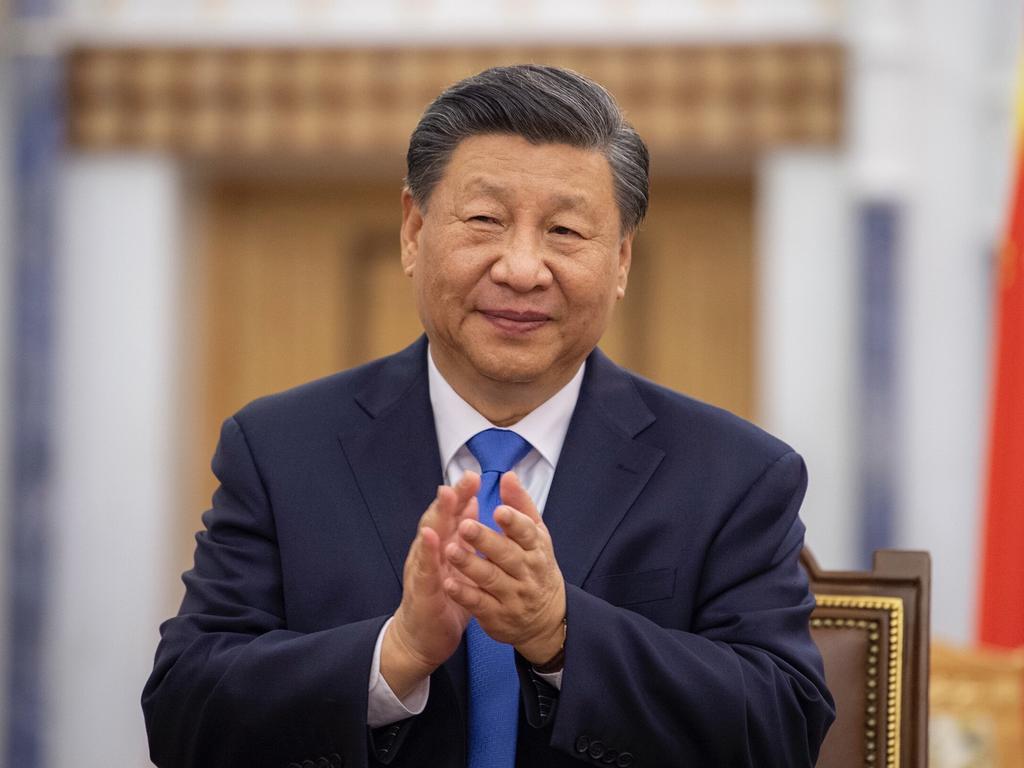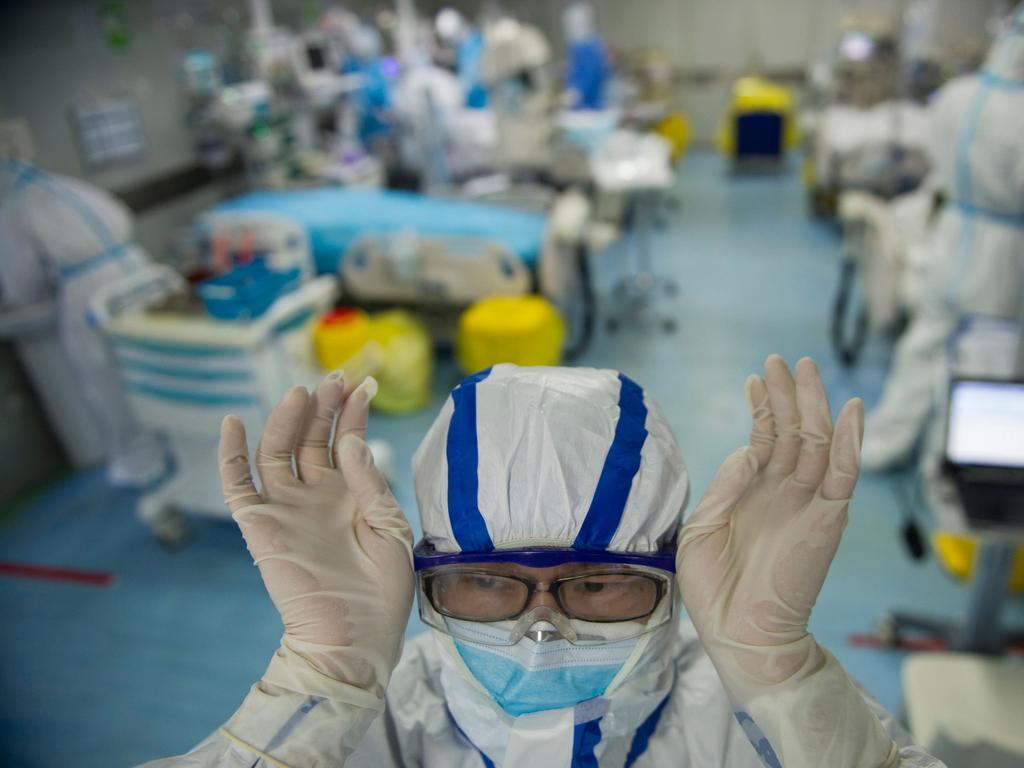China ramps up defence spending by more than 7 per cent to 1.5 trillion yuan
China will increase defence spending by more than 7 per cent to $330bn, citing ‘complex security challenges’.

China will ramp up defence spending by more than 7 per cent to $330bn, citing “complex security challenges”, outstripping the modest economic growth target announced by Xi Jinping’s leadership team.
Premier Li Keqiang tried to project confidence on Sunday after three years of strict “zero Covid” policies as he revealed details of Beijing’s plan to reboot the battered Chinese economy.
“Our economy is staging a steady recovery and demonstrating vast potential and momentum,” Mr Li told about 3000 of the Communist Party’s most senior comrades in Beijing’s Great Hall of the People.
But the modest growth target of “around 5 per cent” indicates China’s leaders remain cautious about the outlook for the world’s second-biggest economy after a humbling 2022. Last year, China’s economy expanded by just 3 per cent, one of its weakest performances in decades and almost half the 5.5 per cent target.
Mr Li – who will step down as Mr Xi’s deputy in the coming days – did not announce any change to Beijing’s Taiwan policy in the keynote speech at the carefully choreographed National People’s Congress, China’s most important annual political meeting.
“We should promote the peaceful development of cross strait relations,” he said, in a passage seemingly pitched at calming concerns among international investors and businesses operating in China.
However, the new national budget revealed defence spending will increase by 7.2 per cent to over $330bn (1.55 trillion yuan), a rise that will disturb many of China’s neighbours.
A government spokesman tried to calm international anxiety about the defence spike.
“The increase in defence spending responds to the needs of complex security challenges and the need to carry out the obligations of a major country,” NPC spokesman Wang Chao said.
China’s rubberstamp parliament will run for nine days.
Mr Xi, 69, is expected to use this year’s parliamentary session to further entrench the Communist Party’s control over state institutions, appoint close loyalists to top government jobs and further centralise portfolios such as finance and technology under his leadership.
In the coming days, he will be reappointed as President after securing another five years as head of the Communist Party and China’s military in October. Xi confidant and former Shanghai party chief Li Qiang will be appointed the new premier.

“Truly momentous and remarkable”
Sunday’s speech is expected to be the final public performance by Mr Li, an official who came to office with a reputation as an economic reformer but who has been sidelined throughout Mr Xi’s first decade in power.
Mr Xi’s departing deputy said China would further open up to international investors, increase spending on innovation and continue to push for entry into the CPTPP trade pact, which would require the approval of all current members including Australia, Japan and Canada.
While the Premier acknowledged that China’s Covid-19 policies had created unexpected difficulty last year, he declared that the Communist Party had secured a “major and decisive victory” over the coronavirus.
“The past five years have been truly momentous and remarkable, under the strong leadership of the Party Central Committee with Comrade Xi Jinping at its core,” he said.
Many international onlookers have been tougher markers. Jens Eskelund, vice-president of the European Union Chamber of Commerce in China, pointed out that last year the American state of Texas received more investment from European countries than “all of China”.
Trade levels have remained much stronger. Last year China’s trade with the US hit a new record, despite the woeful state of their political relationship. China’s trade with Australia was also at near record levels last year, despite Beijing’s blockages of a host of Australian exports.
Many in China have never experienced an economy as sluggish as in recent years. An advertising manager in Beijing said both he and his company had earned almost nothing since 2020.
“I don’t care what big themes the government is talking about. I really need to make some money this year. My family cannot live on savings any more,” he told The Australian.
Most international media were excluded from the Great Hall of the People on Sunday, although some trainee journalists from Asia and Africa – key areas for China’s foreign policy – were flown in to cover the event.
Security, always tight in the capital, was even more visible than usual, with guards and armed police stationed along major roads and at junctions and bridges. A party meeting in October was briefly disturbed by a lone protester, who was arrested after unfurling a banner that criticised Mr Xi.






To join the conversation, please log in. Don't have an account? Register
Join the conversation, you are commenting as Logout